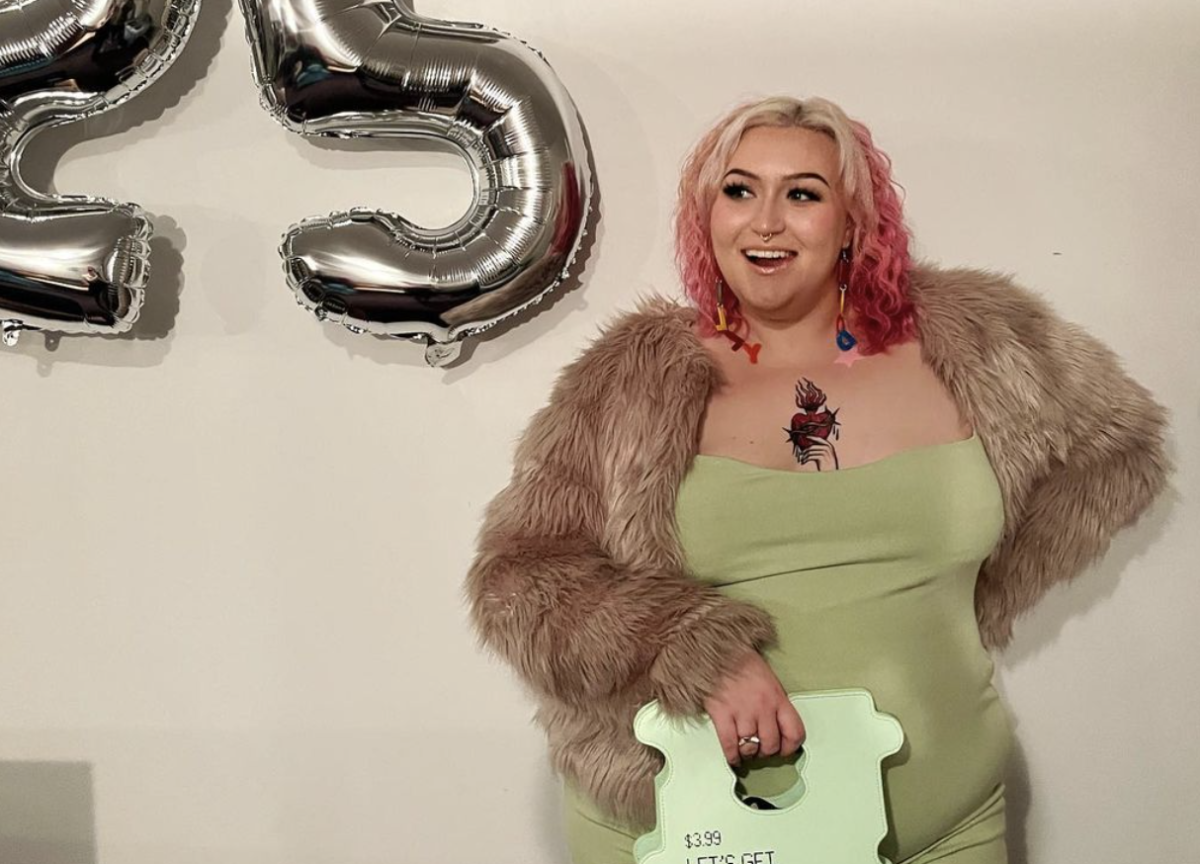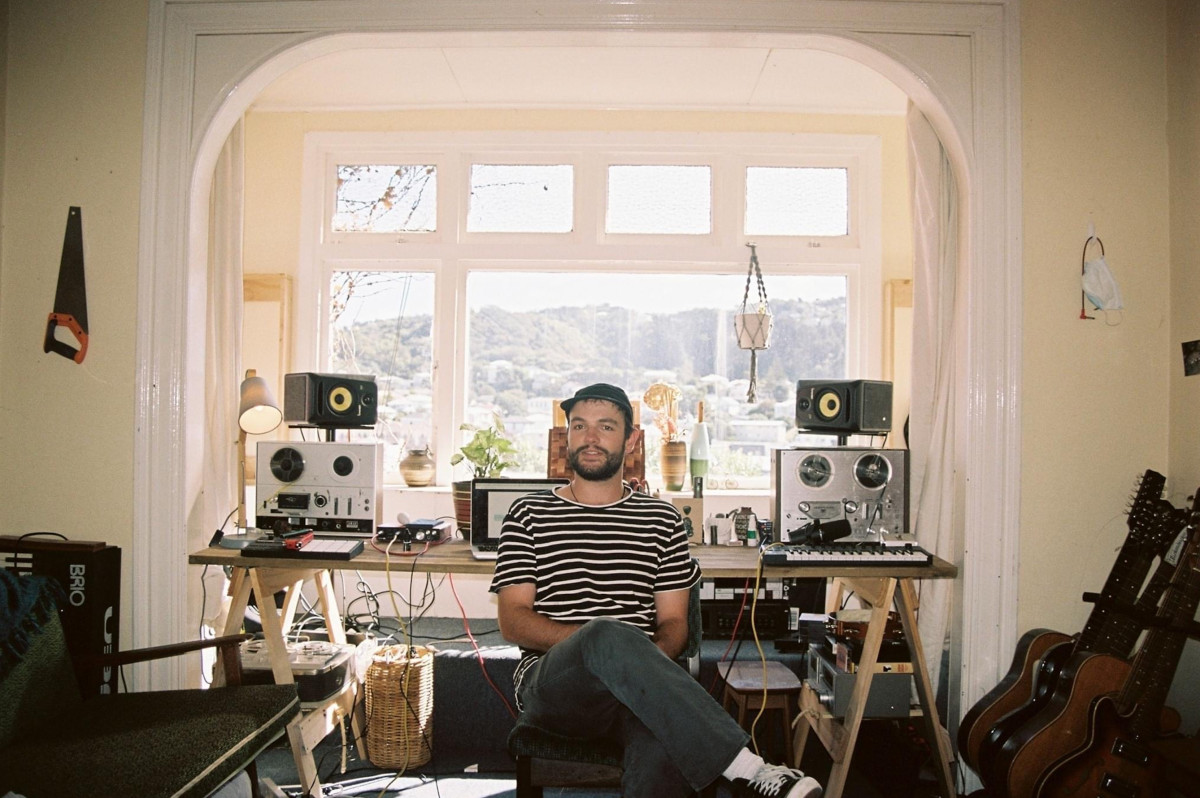“I don't know how sitting up at midnight hooked up to a dialysis machine screams free ride to you, Luxon,” Daisy Bell says. “I don’t think you get it.”
In 2019, out of nowhere, Daisy’s kidneys started failing.
She says it wasn't long before she was diagnosed with IgA nephropathy, a kidney disease that can occur after having glandular fever, where IgA deposits build up in the kidneys causing inflammation and damage to kidney tissues.
“They tried putting me on chemotherapy to save the loss of my kidney function before resorting to dialysis. It was a scary time,” she says.
“I was just another 22-year-old living in a mouldy flat in Wellington doing my thing. Then all of a sudden I was so sick I couldn't work, I couldn't do anything.”
National wants to crack down on youth relying on benefits
Daisy says she was frustrated when National Party leader Christopher Luxon said he was targeting young people’s ‘benefit dependency’ with a new welfare policy.
Under the proposed new policy, National would offer a $1000 bonus to a person who is under 25, has been on the benefit for 12 months or longer, and who then starts work and stays off the benefit for the next year.
It would also shift to job coaching for young beneficiaries through third-party services, rather than individual case management through the Ministry of Social Development.
Those who failed to follow their job plan could also face benefit sanctions.
"To young people who don’t want to work: You might have a free ride under Labour, but under National, it ends,” Luxon said when he announced the new policy at his party’s annual conference in Christchurch.
Prime Minister Jacinda Ardern criticised the policy, saying it was based on ‘old tropes’ and didn’t recognise the incentives currently in place to help youth get into work.
The Green Party's spokesperson for social development, Ricardo Menéndez March, said the policy ignored the reality that many people on Jobseeker benefits have health conditions that prevent them from working.
"Forcing people into employment, no matter how unsuitable, isn't the answer. Increasing benefit sanctions will simply push people into hardship and criminalise families who need support,” he said in a press release on Saturday.
Why are there more young people relying on Jobseeker benefits?
In 2022, 7.6% of 18-24-year-olds are on Jobseeker Support benefits.
The national unemployment rate is currently 3.3% - but for youth aged 15-24 it is much higher at 9.1%.
However in June 2017, youth on Jobseeker benefits and the official unemployment rate were matched at 4.8%.

Daisy Bell says she couldn’t afford to live without Jobseeker Support. Photo: Supplied
Daisy says the reason many of these young people are living on Jobseeker Support is because it’s often the only support available for people with debilitating mental and physical illnesses or disabilities.
When Daisy’s sick leave quickly ran out, she realised being on a Jobseeker benefit was her only option.
She says the disability allowance of $70 a week she was entitled to was not enough to live on.
“I was really fortunate the company I worked for supported me throughout the whole thing and let me keep working 10-15 hours a week when I was well enough. But you obviously can’t survive on this, so if I wasn’t able to go on Jobseeker, I don’t know what would have happened.”
Daisy went off the Jobseeker benefit after she recovered from a kidney transplant about two years later.
She says calling the benefit ‘Jobseeker’ does not encapsulate the varied experiences of the people who rely on it.
“I was in the hospital three, four times a week getting constant blood tests to make sure my kidneys weren’t rejecting treatment. But I was still getting phone calls from a woman telling me there was a job seminar I should go to.
“I would tell them repeatedly ‘I’ve got a job, I am not unemployed, but Jobseeker was the only support that could work for me.’”

Samuel Morgan was on Jobseeker Support because his vision deterioration made it difficult to find work. Photo: Supplied.
Samuel Morgan agrees the Jobseeker benefit needs rebranding.
The 25-year-old has been on and off Jobseeker Support because there wasn’t a disability benefit he could access.
Samuel has pigmentosa, a rare eye disease that breaks down the eye’s retina over time, causing vision loss.
At this stage in his life, Samuel has issues with his peripheral vision and night blindness. This means he doesn’t feel safe driving a vehicle and has to actively focus on his vision.
Samuel says he would only be eligible for the Supported Living Payment, a weekly payment for people who have an injury or disability that means work is unlikely within the next two years, if he was completely blind.
“I have to concentrate on my vision 100% of the time because my eyes are looking everywhere just so I don't trip over. So working is harder and more exhausting for me,” he says.
“My case manager knew about my impairment but would still send me jobs where you needed a licence or ones that require driving.”
After struggling for years to find suitable work, Samuel is now working at Arts Access Aotearoa as a digital content producer.
“Going into work has been overwhelming and exhausting but it has felt incredible. I'm super privileged where I landed because they are all about accessibility.
“I didn’t want to be on the benefit, I wanted to work. I wanted to be independent. I just couldn’t find the support to get me into work.”
Samuel says most young people on benefits aren’t just living comfortably, sitting on the couch all day watching Netflix. They are often unwell and just want to get better.
“Chucking people into general job coaching and expecting them to land a full-time job doesn’t work. Some people just aren’t fit to work at certain times in their life - those people need to be supported, not penalised.
“We all have different skill sets, some people just need more support to be able to contribute - but that support can be so hard to find,” he says.
More stories:
Upswing in support for ACT Party, Labour continues to dip in latest poll
Jacinda Ardern has "no plans to go anywhere" and wanted to contest the 2023 election as leader.
Is it OK to buy your own pounamu? Tikanga explained
“This work connects me to my ancestors - to my dad and the work he does."
Debunking 5 sex myths I learnt as a young Pasifika woman
If your oil dries up, you’re absolutely fine, sis.